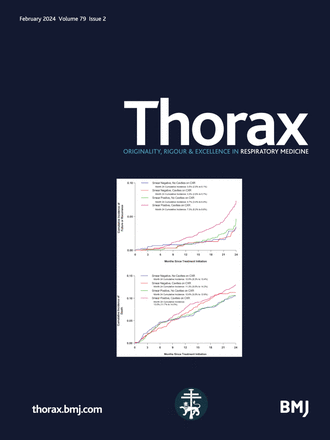气候变化:欧洲及其他地区真菌疾病的边界不断变化
IF 7.7
1区 医学
Q1 RESPIRATORY SYSTEM
引用次数: 0
摘要
气候变化正在改变全球的生态系统。虽然不断变化的环境条件是复杂的,但据推测,气候变化的影响直接导致全球真菌感染的增加。气温上升、降水模式变化和极端天气事件被认为正在推动真菌病原体适应新的气候,扩大其地理范围,并对人类健康和农业构成越来越大的威胁。这篇综述强调了气候变化如何影响关键病原体,包括耳念珠菌、矫形念珠菌、后门隐球菌和烟曲霉耐药菌株,这些病原体已成为重大的公共卫生问题。全球化、城市化和农业杀菌剂的广泛使用加速了它们的传播,这进一步增加了抗真菌性。耐药菌株的日益流行和新型真菌病原体的出现可能与人为气候变化有关,这突出表明迫切需要采取行动并进行更有力的数据收集。本文章由计算机程序翻译,如有差异,请以英文原文为准。
Climate change: shifting boundaries of fungal disease in Europe and beyond
Climate change is altering ecosystems worldwide. While shifting environmental conditions are complex, it has been hypothesised that the impact of climate change is directly leading to increases in fungal infections across the globe. Rising temperatures, changing precipitation patterns and extreme weather events are thought to be driving the adaptation of fungal pathogens to new climates, expanding their geographical range and posing a growing threat to human health and agriculture. This review highlights how climate change may impact key pathogens, including Candida auris , Candida orthopsilosis , Cryptococcus deuterogattii and resistant strains of Aspergillus fumigatus , which have emerged as significant public health concerns. Their spread is accelerated by globalisation, urbanisation and the intensifying use of agricultural fungicides, which further increase antifungal resistance. The growing prevalence of resistant strains and emergence of novel fungal pathogens is likely linked to anthropogenic climate change, underscoring the urgent need for action and for more robust data collection.
求助全文
通过发布文献求助,成功后即可免费获取论文全文。
去求助
来源期刊

Thorax
医学-呼吸系统
CiteScore
16.10
自引率
2.00%
发文量
197
审稿时长
1 months
期刊介绍:
Thorax stands as one of the premier respiratory medicine journals globally, featuring clinical and experimental research articles spanning respiratory medicine, pediatrics, immunology, pharmacology, pathology, and surgery. The journal's mission is to publish noteworthy advancements in scientific understanding that are poised to influence clinical practice significantly. This encompasses articles delving into basic and translational mechanisms applicable to clinical material, covering areas such as cell and molecular biology, genetics, epidemiology, and immunology.
 求助内容:
求助内容: 应助结果提醒方式:
应助结果提醒方式:


